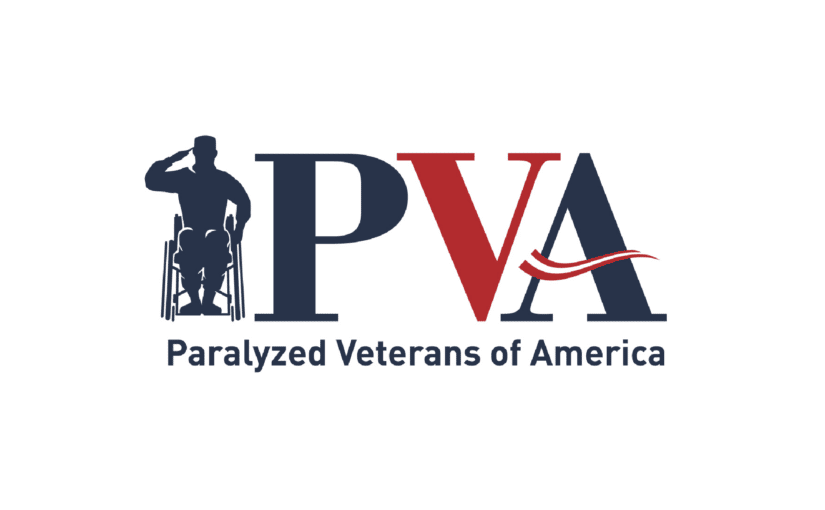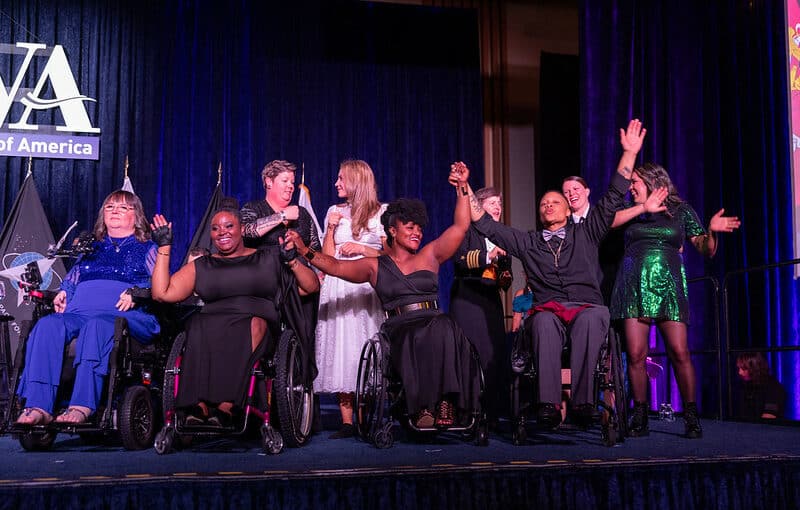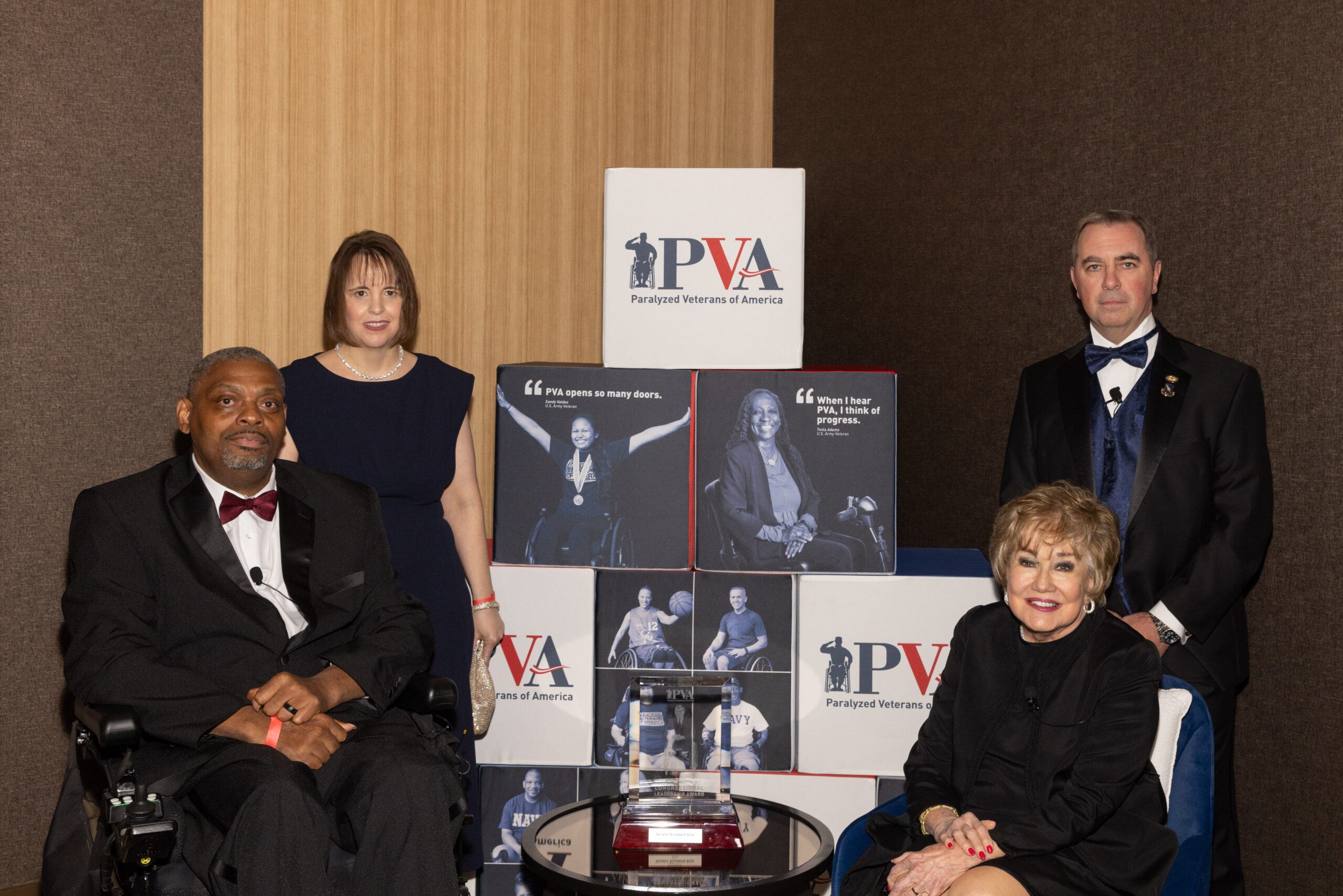Authors of The Independent Budget Statement on VA’s FY 2020 Budget Request
Post Date: March 25, 2019MEDIA CONTACTS: DAV: Ashleigh Byrnes, 202-314-5214, abyrnes@davmail.org
PVA: Liz Deakin, 202-416-7627, lizd@pva.org
VFW: Joe Davis, 202-608-8357, jdavis@vfw.org
WASHINGTON, DC — In response to the Administration’s budget request for Fiscal Year 2020 for the Department of Veterans Affairs, DAV, Paralyzed Veterans of America and Veterans of Foreign Wars of the U.S. — authors of The Independent Budget — today issued the following statement:
“The FY 2020 budget request falls short of meeting the needs of VA and does not fully fund the VA MISSION Act or veterans’ health care programs. Although the Administration’s budget request provides a 7 percent increase in the level of discretionary funding, when factoring in VA’s own estimates of the cost of implementing the VA MISSION Act, the shift of $5.5 billion from mandatory to discretionary funding from the Choice program, and the increased cost for providing medical care due to inflation and other factors, VA will not have sufficient resources to meet the health care needs of America’s veterans.
“Compared to the IB recommendations for FY 2020 released last month, the Administration requests $4 billion less for veterans’ health care than the IB estimates is necessary to fully meet the demand by veterans for health care next year. Further, the Administration’s budget request contains dangerous cuts to VA’s infrastructure and research that are the foundation of veterans’ health care.
“In addition, the Administration’s budget request makes clear that VA will fail to meet the VA MISSION Act’s timetable for expanding its comprehensive caregiver support program to severely injured WWII, Korean and Vietnam War veterans and their family caregivers. These men and women have waited nearly a decade for equal treatment and it is simply unacceptable to ask them to wait longer.
“Overall, the Administration’s FY 2020 budget request for the Department of Veterans Affairs will not allow VA to fully and faithfully implement the VA MISSION Act, nor will it fully meet the rising demand by veterans for care within VA hospitals and clinics. Unless Congress acts to substantially increase VA’s funding for FY 2020, veterans will be forced to wait longer for care— whether they seek care at VA or in the community — leaving unfulfilled the promises made to veterans in the VA MISSION Act.”
Below are specific comments from the authors of the IB on some of the most critical elements of VA’s budget request.
VA Medical Services
The Administration’s FY 2020 request for VA Medical Services (care provided in VA hospitals and clinics) of $51.4 billion is $1.5 billion more than the current estimated FY 2019, apparently a 3 percent increase. However, when taking into account the increased cost to maintain current services and anticipated increases in workload, as well as increased costs inside VA due to the VA MISSION Act, that increase becomes a shortfall. The IB recommended $56.1 billion for VA Medical Services to fully fund care delivered by VA’s hospitals and outpatient clinics. Note that the IB does not include anticipated receipts from VA’s Medical Care Collections Fund (MCCF) in its recommendation.
VA Medical Community Care
The Administration’s FY 2020 request for $15.3 billion in discretionary funding appears to be a $5.9 billion increase in funding for Community Care. However, VA has indicated that $5.5 billion of that increase merely represents shifting $5.5 billion that would otherwise be necessary to pay for the Choice program, from mandatory funding. Considering that VA estimated the VA MISSION Act will require $2.6 billion in new funding for expanded access based on new access standards, expanded transplant care and $271 million for urgent care, there appears to be a significant shortfall for VA community care programs. The IB recommended $18.1 billion for Community Care to fully fund the Veterans Community Care Program established by the VA MISSION Act.
VA Infrastructure
The Administration’s FY 2020 request for VA’s construction programs of $1.8 billion dollars is a 44 percent reduction from FY 2019 funding levels, and a significant retreat in funding to maintain VA’s aging infrastructure. The IB strongly disagrees with VA’s decision to return to its practice of underfunding infrastructure needs, which is why it recommended $3.8 billion for construction accounts to maintain, repair and expand VA’s infrastructure.
In addition, the Administration’s FY 2020 Medical Facilities request of $6.1 billion, which includes critical Non-Recurring Maintenance to ensure VA facilities have the space to provide care, is a $660 million cut compared to FY 2019 levels. The IB recommended $6.6 billion.
VA Research
The Administration’s FY 2020 request for Medical and Prosthetic Research of $762 million is a 2 percent cut, at a time when medical research inflation is estimated to be 2.8 percent. This reduction would diminish VA’s ability to provide the most advance treatments available to injured and ill veterans in the future, one of VA’s core missions. The IB recommended increasing VA Research to $840 million.
Caregiver Expansion
Although the VA MISSION Act set out very clear timetables to expand VA’s comprehensive caregiver support program to pre-9/11 era severely injured veterans, VA’s FY 2020 budget request and statements have made it clear that the October 2019 start date for the first phase of the expansion will be significantly delayed, with no clear start date. For thousands of WWII, Korean and Vietnam veterans and caregivers who were relying on this life-changing support, VA’s impending failure to deploy and certify required IT systems is simply unacceptable. The IB recommended $253 million to fully implement phase one of the caregiver expansion in FY 2020.
Veterans Benefits
More importantly, the Administration’s budget includes at least two harmful proposals that would cut over $4 billion dollars from veterans’ disability compensation payments by rounding down cost-of-living adjustments (COLAs) and making it harder for veterans to receive exams necessary to prove their claims in the future. The IB opposes both of these proposals.
For more than 30 years, The Independent Budget veterans service organizations (IBVSOs) – DAV, Paralyzed Veterans of America,, and the Veterans of Foreign Wars of the United States – have worked to develop and present concrete recommendations to ensure that the Department of Veterans Affairs remains fully funded and capable of carrying out its mission to serve veterans and their families both now and in the future.
To view the IB’s full budget and policy recommendations, please visit independentbudget.org.



